Liverpool’s modern history of disappointment explains why the pressure is building on Jürgen Klopp
Liverpool supporters have seen their club in this unique position time and time again, which goes some way to explaining Klopp's current situation
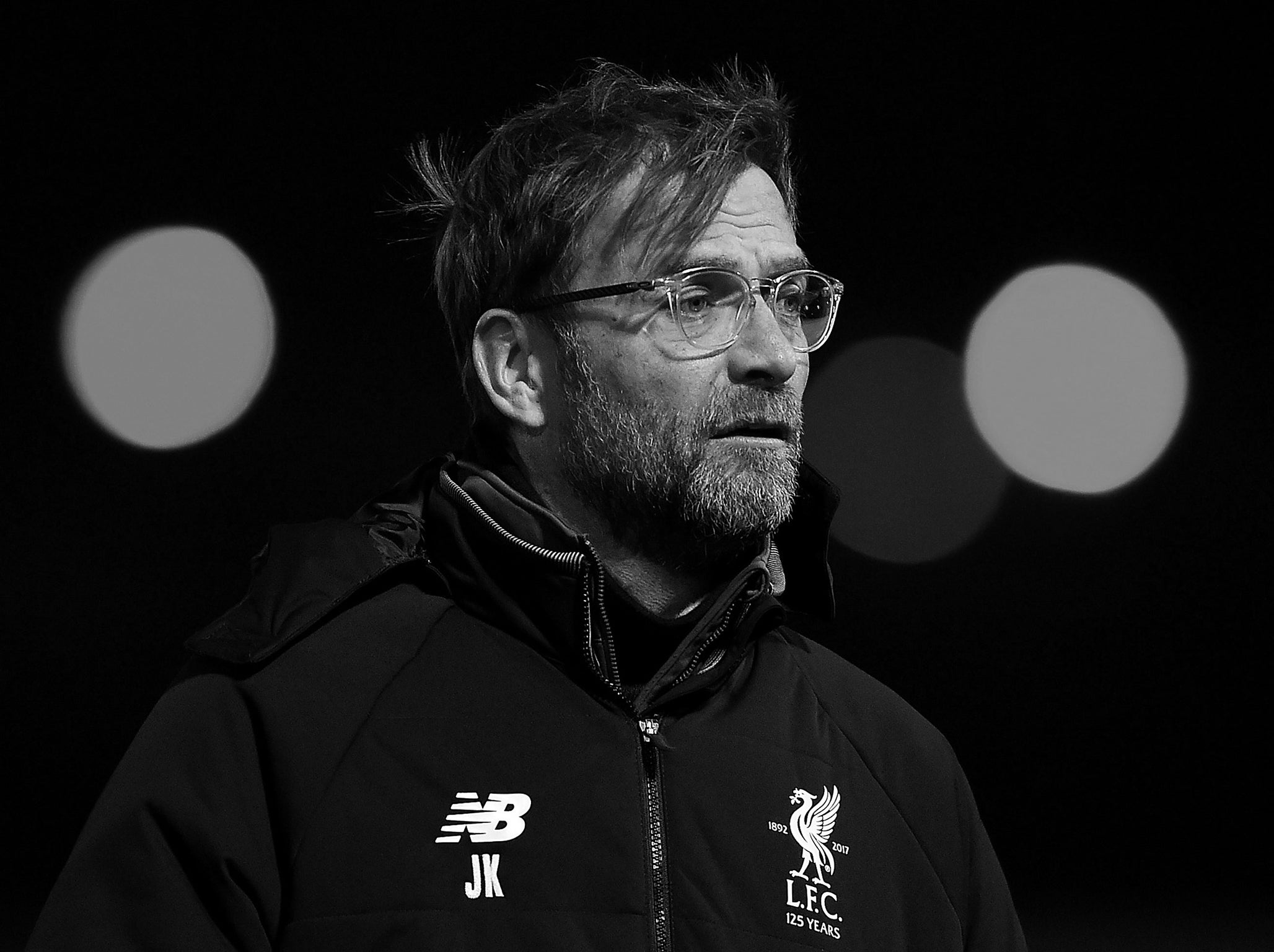
Your support helps us to tell the story
From reproductive rights to climate change to Big Tech, The Independent is on the ground when the story is developing. Whether it's investigating the financials of Elon Musk's pro-Trump PAC or producing our latest documentary, 'The A Word', which shines a light on the American women fighting for reproductive rights, we know how important it is to parse out the facts from the messaging.
At such a critical moment in US history, we need reporters on the ground. Your donation allows us to keep sending journalists to speak to both sides of the story.
The Independent is trusted by Americans across the entire political spectrum. And unlike many other quality news outlets, we choose not to lock Americans out of our reporting and analysis with paywalls. We believe quality journalism should be available to everyone, paid for by those who can afford it.
Your support makes all the difference.Around the time Liverpool’s wait for a nineteenth league title had inconceivably stretched into a sixth or seventh year, social interaction was changing, as were media platforms. The old method of complaining about missed goalscoring opportunities or defensive howlers to the Pink Echo by letter was out and phone-ins were in.
How on earth could Liverpool beat Newcastle United so thrillingly on a Wednesday night, then lose so abjectly at Coventry come Saturday afternoon? “The manager must have lost his head and if he hasn’t he must surely lose it anyway!”
The lines were jammed with angry supporters, whether they’d been to the match or not, wanting to have their voice heard about the credentials, achievements and particularly, the personality of Roy Evans. Over and over again the critics would say he was too understanding with a young group of footballers, some of whom were comfortable enough in themselves to appear in lads’ magazines like Loaded under headlines such as ‘BIRDS, BOOZE AND BMWs.’
“Of course I’d hear them,” Evans admitted years later, remembering the journeys home when he’d dared to tune in to Radio City. “It’s very nice to get patted on the back. But most of the time as manager you’re taking stick. The good times don’t last very long. I’m always saying to people, ‘Hey, you might have an opinion but yours will never get put to the test.’”
As the saying goes, the more things change, the more they stay the same. Liverpool are still waiting for number nineteen two decades on. It is now Jürgen Klopp rather than Evans who is two and a half years into the job. Phone-ins remain moan-ins – and though perhaps nobody moans quite as much as the average anonymous Twitter crank, the Liverpool manager remains subject to the strictest examination in every decision he makes.
When Klopp’s team – like Evans’s – possesses a soft underbelly with a dodgy goalkeeper and an untrustworthy defence, how long will it be before it is recognised and widely received that Liverpool are merely just a few Paul Ince tackles away from having the sort of courage that is supposedly necessary to heave teammates over the line?
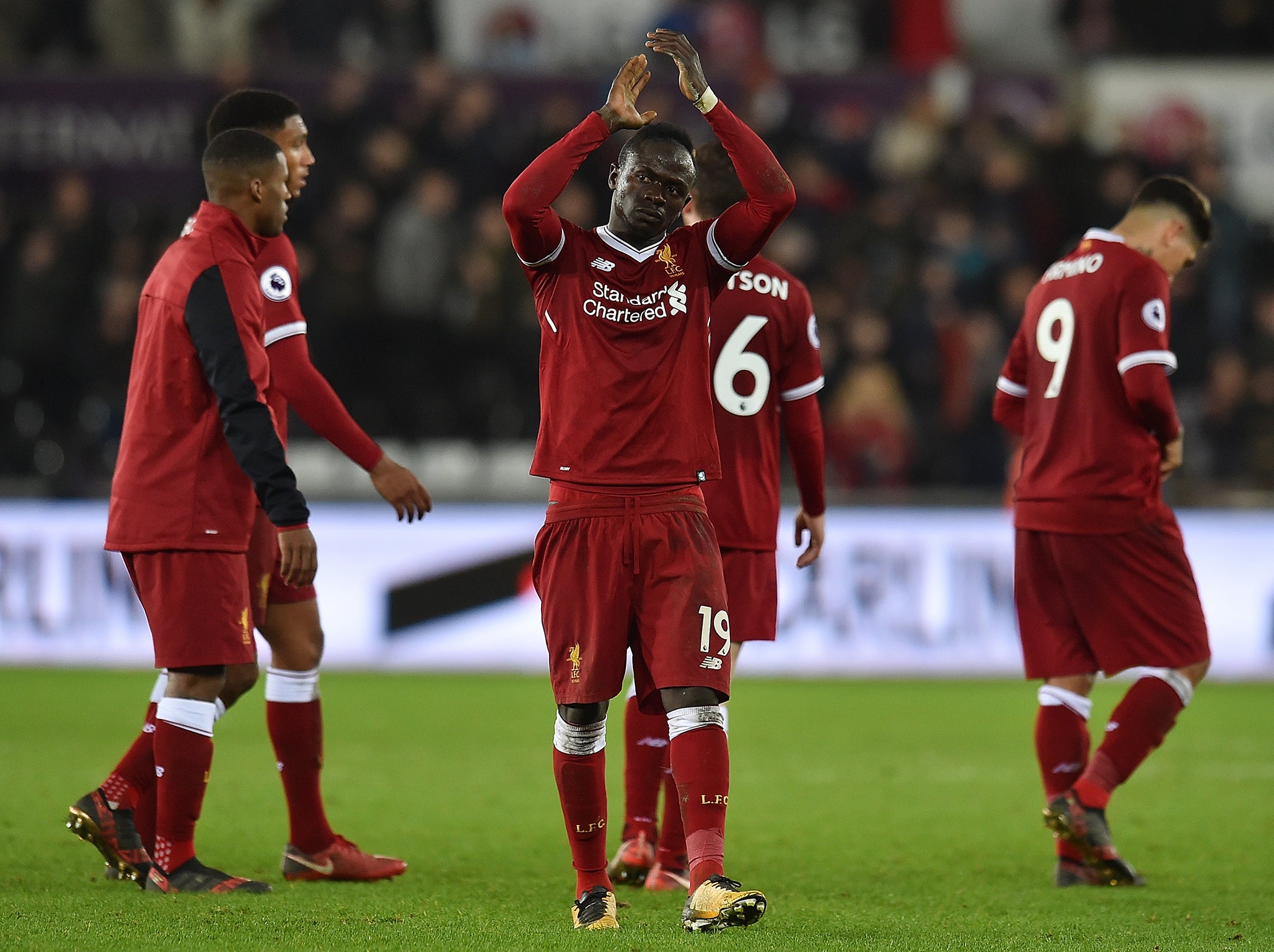
For Klopp, then, this is where the bulk of the pressure on him comes from: a modern history of disappointment. Liverpool supporters have seen this all before: beating Manchester City 4-3 (like Newcastle), then losing 1-0 in their next game at an opponent threatened by relegation before getting back on track with subsequent suggestions that actually, things might be ok (see Huddersfield).
They already know how this story ends: the one where the project fails because long-term ideals fall apart when tomorrow never comes. They have seen Klopp operate twice in winter time, the least effectively being last year when no replacements were sought for Philippe Coutinho or Sadio Mané when they were unavailable and the wheels of an entire season almost fell off, though they should recognise Virgil van Dijk has been recruited this time and he should prove to be an improvement.
The introduction to this article, indeed, might have been used when Brendan Rodgers was struggling with the unique demands of this idiosyncratic club, though it is also fair to add that Evans never sold any of his best players – nor was he told he told that he had to - in what proved to be for him, aside from a League Cup victory in 1995, a vain pursuit of glory.
Whether this reflects better on Evans and worse on Rodgers and Klopp is difficult to assess because while Rodgers certainly did not want to sell Luis Suárez nor Raheem Sterling, he contributed towards outcomes, and while Barcelona’s push to sign Coutinho was aggressive, Klopp said he could go because he has confidence that eventually it won’t matter – even though he could have kept hold of him until the summer if he was bloody-minded enough.
(Evans, meanwhile – like Rodgers, but perhaps unlike Klopp who is getting exactly what he wants, though not necessarily exactly when he wants it – was told he could not sign Teddy Sheringham by directors in 1997 because he was too old and did not represent value for money. Two years later, Sheringham would score an equalising goal in a victorious Champions League final for Manchester United).
Liverpool are not alone in becoming prey in the transfer market since the Evans era because aside from Real Madrid, Barcelona and perhaps Chelsea, every club is. Yet just because frustrations with the wider system are understandable, it equally does not mean decision makers at Liverpool are immune from critical assessment.
Under American ownership, Liverpool have consistently struggled to improve from a position of strength or find replacements when they’ve needed to in order to maintain the sort of momentum that is required to offer a better chance of winning trophies. Players have been traded rather than squads built.
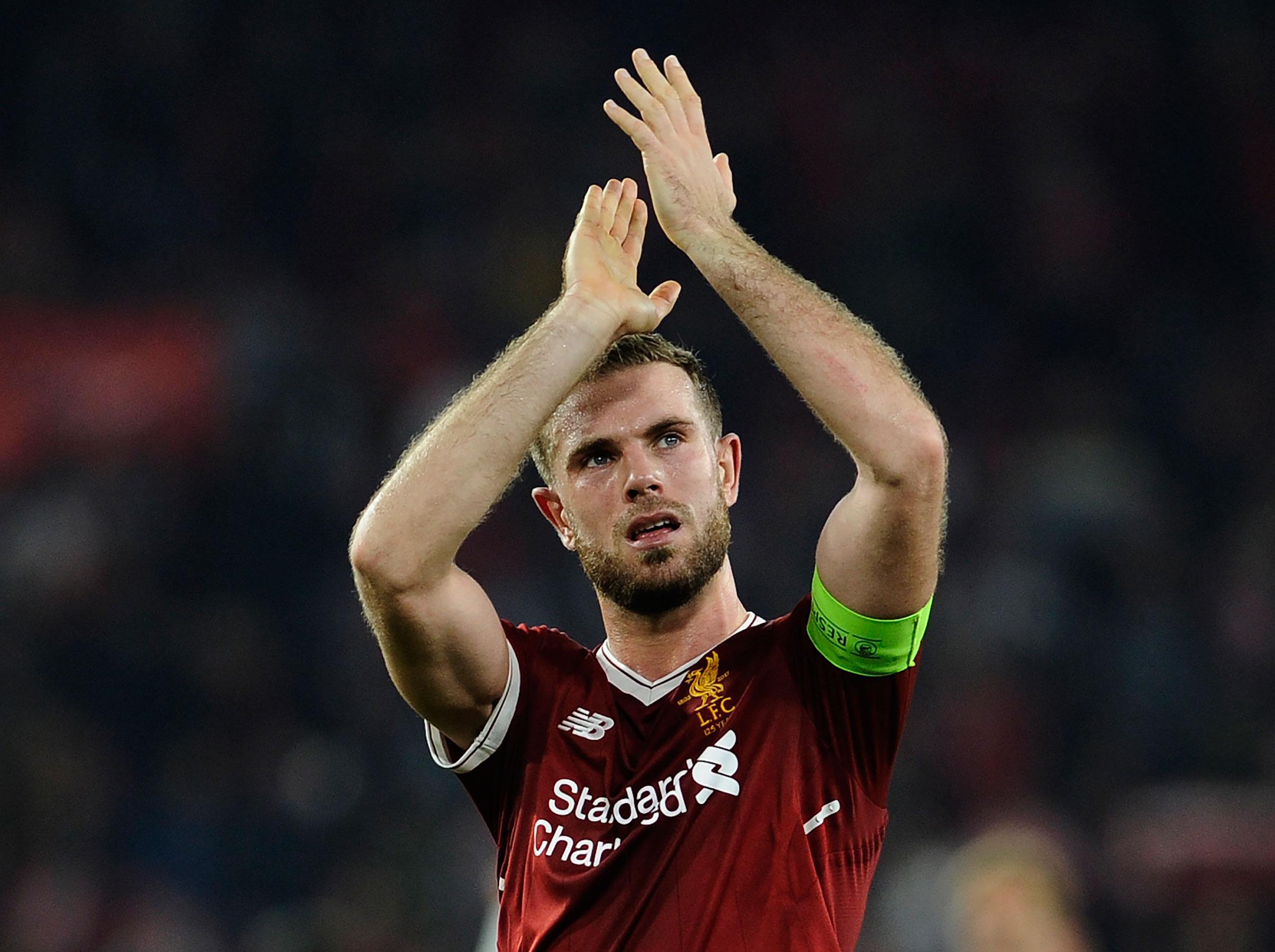
It is worth considering that only four members of the team that finished second in 2009 were present at the FA Cup final of 2012, albeit two of them were named as substitutes. It is worth considering as well that only one was involved in Tuesday’s victory over Huddersfield from the side that again finished second in 2014. That player was Jordan Henderson, a captain whose injury record means he is no longer a guaranteed starter.
There were some suggestions that Klopp was contemplating an approach for Manuel Lanzini when Coutinho was sold but that was before the Argentine midfielder was ruled out for the next couple of months through injury. Klopp has since sanctioned the release of Daniel Sturridge on loan, leaving Liverpool’s squad much lighter in a month when rivals have increased their options.
Realistically, Klopp now has 18 senior outfield players to choose from across the second of a tight league campaign between second place and sixth, a campaign that also involves Champions League football. It would point towards the eventuality that he will call upon academy graduates between now and May. If this is his plan and he is convinced by it, why not try and explain his vision?
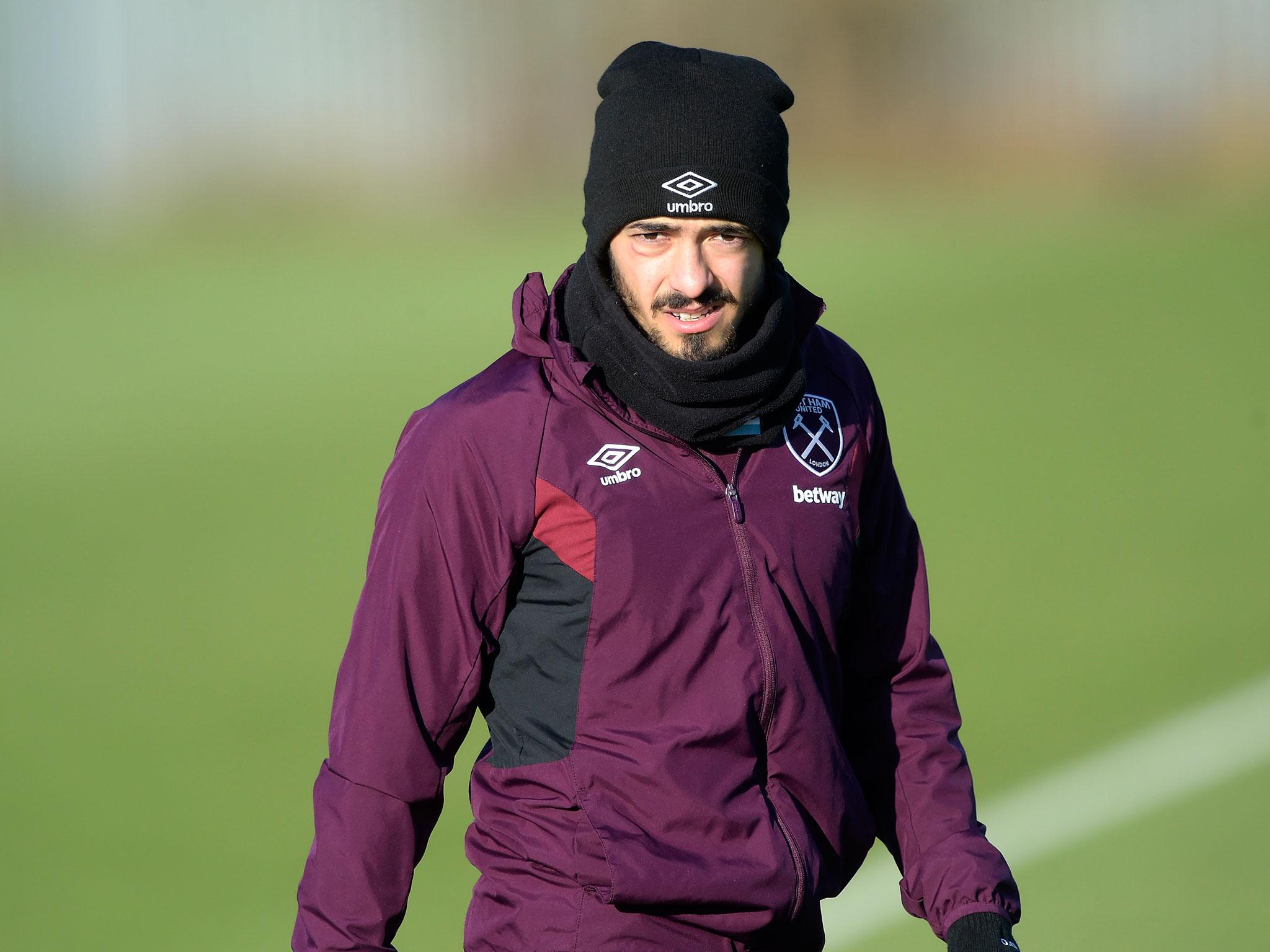
Considering the number of players with no prior affiliation to the club that have engineered moves away since 2009, it would be a sensible thing to try and achieve. Trent Alexander-Arnold’s progress this season has been promising but Liverpool need more like him: lads who are not only wedded to the club but wedded to the city, those who really mean it when they say their dreams are at Anfield and nowhere else.
The present cycle of players being bought and then being sold erodes trust, disrupting the harnessing of any healthy relationship between the terraces and the team. This contributes towards atmosphere. Surely it impacts on results.
The interpretations of Liverpool supporters surely have to be considered when assessing the possibilities of achieving success. Klopp himself has placed so much emphasis on the role they have in helping his team yet do the businessmen behind Liverpool that promote the famous Anfield atmosphere as a reason for new supporters from afar to invest in the club really appreciate the impact of the environment that is being manufactured?
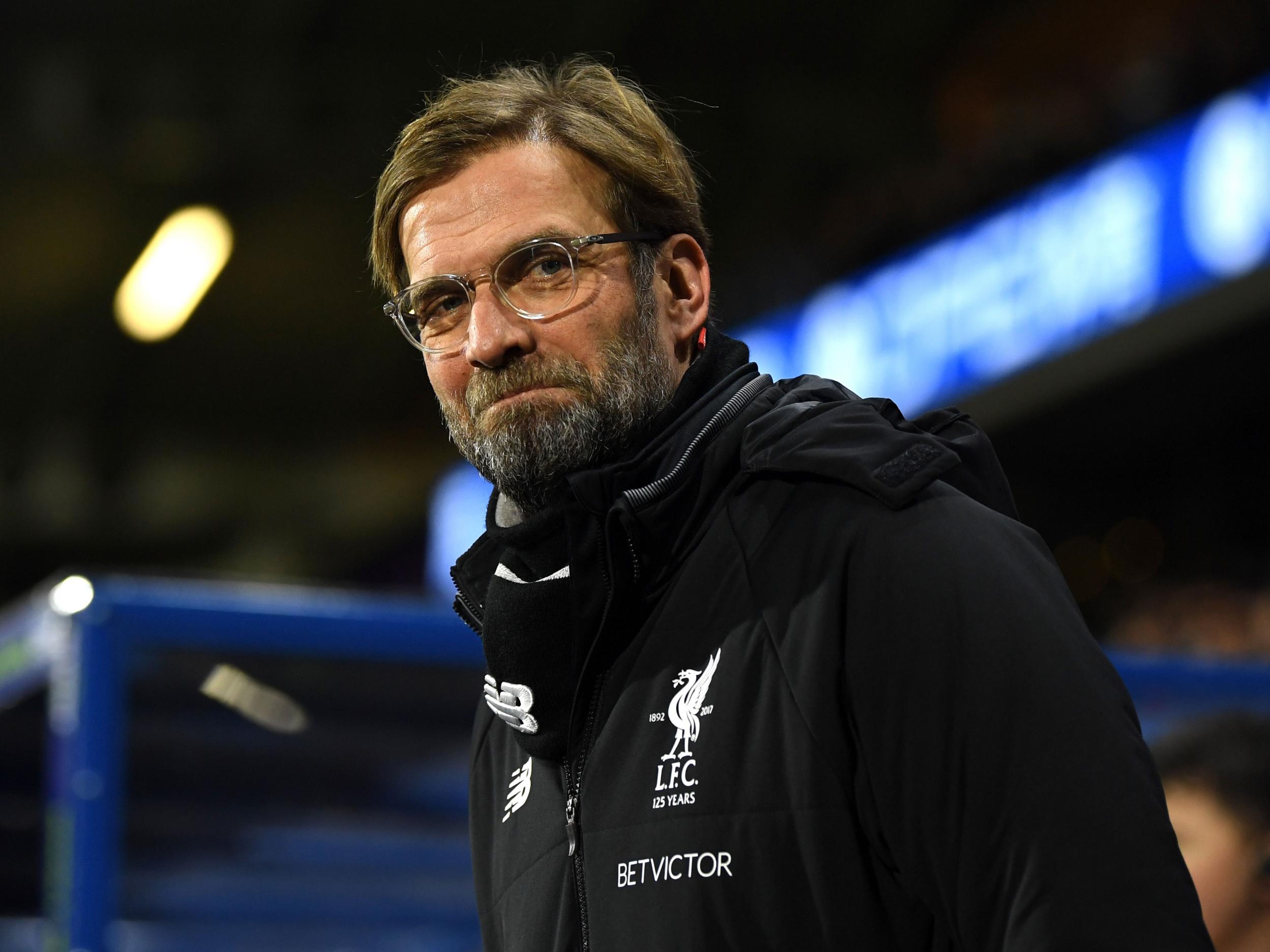
Through clever marketing and the draw of the Premier League, Liverpool’s popularity has risen in the last ten years despite the most fallow period on the pitch in decades and so, is it any wonder noise and frustration follows across the self-perpetuating podium of social media when the product being suggested isn’t the one being delivered?
On the same theme, when Klopp has been sold on the idea of those ‘famous European nights’ only to find a reality at most home matches that groups of young people - the ones who tend to create the energy and belligerence in the crowd - are priced out of stadiums at the expense of a wealthier, albeit ageing and sapped fan base, you realise there is an imbalance of expectations at every level.
Perhaps no city – no other club, indeed - meets authority with suspicion as much as Liverpool. Research the impact of central governance in the 1980s then remember what happened when Tom Hicks and George Gillett were owners and any balanced individual would surely begin to appreciate why.
And so, social understanding is a necessary if you really want to grasp why attitudes and reactions are the way they are, particularly if you stand as Liverpool’s manager. Ultimately, his opinion is the only one that will be tested. You sense the sharpest test of the latest one is coming.
Join our commenting forum
Join thought-provoking conversations, follow other Independent readers and see their replies
Comments